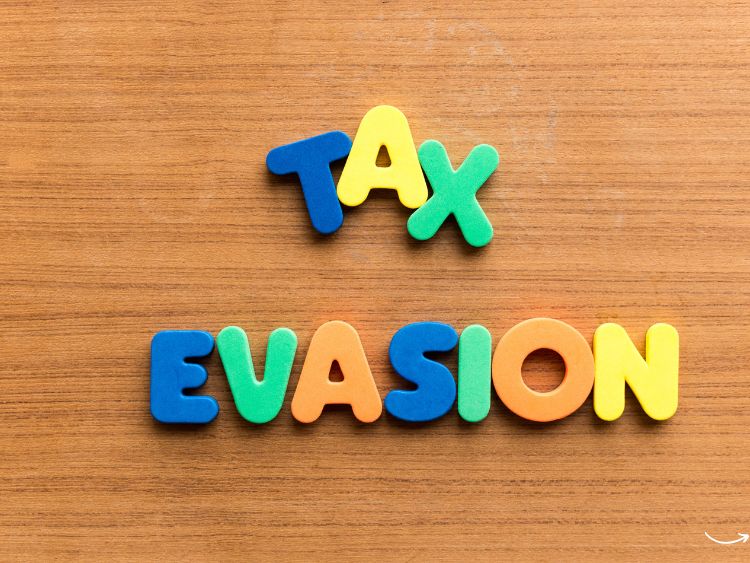In recent years, symbols and flags have taken on new meanings, representing various movements and ideologies. One such symbol that has emerged and sparked significant debate is the so-called “tax evasion pride flag.” This unique and provocative flag is not just a whimsical creation but a symbol of a controversial stance against government taxation. But what exactly is the tax evasion pride flag, and why has it garnered so much attention?
What is the Tax Evasion Pride Flag?
The tax evasion pride flag is a flag that symbolizes the pride of those who oppose paying taxes. It’s not widely recognized in mainstream culture, but it has gained a following among certain groups who view taxation as an unjust practice. The flag itself varies in design, often incorporating symbols of defiance against government control and financial autonomy.
Origins of the Tax Evasion Pride Flag
The exact origins of the tax evasion pride flag are somewhat murky, but it appears to have emerged from libertarian and anarchist circles. These groups, which advocate for minimal government intervention in personal and economic affairs, have long criticized taxation as a form of coercion.
The Flag’s Design
While there isn’t a standardized design for the tax evasion pride flag, common elements include:
- Colors associated with libertarianism: Gold and black.
- Symbols of defiance: Chains being broken, dollar signs, and phrases like “Taxation is Theft.”
The Ideology Behind the Flag
To understand the tax evasion pride flag, one must delve into the ideology that fuels it. The flag represents a broader philosophical and political stance against taxation.
Taxation is Theft
A central tenet of those who fly the tax evasion pride flag is the belief that “taxation is theft.” This phrase, popularized by libertarians, suggests that taxes are a form of involuntary servitude, where the government takes money from individuals without their explicit consent.
Financial Autonomy and Government Overreach
Supporters of the tax evasion pride flag argue that individuals should have complete control over their finances. They believe that government overreach through taxation infringes upon personal freedoms and property rights.
Economic Efficiency
Another argument put forth by tax evasion advocates is that private individuals and organizations can allocate resources more efficiently than the government. They cite instances of government waste and inefficiency as evidence that taxes do not always serve the public good effectively.
Controversies Surrounding the Flag
The tax evasion pride flag is not without its controversies. Many view it as a symbol of selfishness and a lack of social responsibility.
Legal and Ethical Issues
Tax evasion is illegal in most countries, and promoting it can have serious legal repercussions. Ethically, many argue that paying taxes is a civic duty that supports essential public services such as education, healthcare, and infrastructure.
Social Responsibility
Critics of the tax evasion pride flag argue that it undermines social solidarity. Taxes are seen as a way for citizens to contribute to the common good, ensuring that everyone has access to necessary services and support.
The Broader Impact of the Flag
Despite its controversial nature, the tax evasion pride flag has sparked important conversations about the role of taxation in society.
Public Discourse
The flag has prompted debates about the fairness and efficiency of the tax system. While some use it to critique government policies, others see it as an opportunity to discuss potential reforms to make taxation more equitable and transparent.
Political Movements
The flag has also been adopted by certain political movements and parties that advocate for lower taxes and reduced government spending. These groups use the flag to rally support and promote their agendas.
FAQs
Q: What does the tax evasion pride flag look like?
A: The design varies, but it often features colors and symbols associated with libertarianism and anti-tax sentiments.
Q: Is promoting tax evasion legal?
A: No, promoting or engaging in tax evasion is illegal and can result in severe penalties.
Q: Why do some people support the tax evasion pride flag?
A: Supporters believe that taxation is a form of coercion and that individuals should have complete control over their finances.
Q: What are the arguments against the tax evasion pride flag?
A: Critics argue that it promotes illegal activity and undermines social responsibility and solidarity.
Q: Has the tax evasion pride flag influenced any political movements?
A: Yes, it has been adopted by some political groups advocating for lower taxes and reduced government spending.
Summary
The tax evasion pride flag is a contentious symbol that has sparked significant debate about the role of taxation in society. While some view it as a representation of financial autonomy and a critique of government overreach, others see it as promoting illegal and unethical behavior. Regardless of where one stands, the flag has undeniably contributed to ongoing discussions about the fairness and efficiency of the tax system.
Authoritative Links
By delving into the intricacies of the tax evasion pride flag, we uncover not just a symbol, but a complex web of ideological beliefs and societal debates that challenge our understanding of taxation and civic duty.






